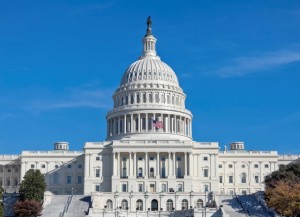The Bahraini government’s legal move against the main opposition group escalates its differences with Washington but could also provide an opportunity for diplomacy.
On July 20, Bahrain’s Justice Ministry submitted a legal request that, if accepted by a local court, will bar the country’s main Shiite opposition group, al-Wefaq, from operating for the next three months. The reason given was so that al-Wefaq “can correct its legal status,” a reference to alleged breaches of esoteric Bahraini law regarding the creation of “political societies” — political parties as such are technically not allowed. The government is also concerned about the paramount status within the group of a certain “religious man.” While unnamed in the legal request, this individual is readily identifiable as Sheikh Isa Ahmad Qassem, who heads a committee with the power to reject candidates for the group’s top internal post of secretary-general.
The likely context of the move is Bahrain’s continuing resentment of a visit last month by U.S. assistant secretary of state Tom Malinowski, who was photographed meeting with al-Wefaq secretary-general and Shiite cleric Sheikh Ali Salman. In response, Manama expelled Malinowski, alleging that he had breached diplomatic custom by meeting with opposition representatives before government representatives, and that U.S. officials had ignored its requirement that a Bahraini official be present at any embassy meetings with al-Wefaq. Afterward, the government began legal action against Sheikh Ali and another al-Wefaq official.
The probable three-month suspension is awkward for U.S. diplomacy because, assuming it takes effect quickly, it would likely end just before Bahrain’s national assembly elections, slated to take place in October or November. U.S. and other Western officials have been supporting a slow-moving political process designed to bring al-Wefaq back into the mainstream. The group’s members of parliament resigned in 2011 after antigovernment riots were savagely put down, with reinforcements arriving from Saudi Arabia and the United Arab Emirates to bolster the Sunni government of King Hamad bin Isa al-Khalifa. Although Bahrain has a majority Shiite population, al-Wefaq and its allies have never won a majority of the forty-seat national assembly.
The official position of al-Wefaq, which appeared surprised by the government’s latest move, has been that it will not take part in elections until reforms are implemented, including redistricting and increasing the power of the national assembly, especially its ability to approve the cabinet’s composition. The group’s leaders, as well as U.S. officials, must now judge whether it is subtly being challenged to take part in the elections on the government’s terms or being increasingly sidelined.
Washington’s immediate ability to respond to the move is made more awkward by the diplomatic priority likely being given to the fighting between Israel and Hamas in Gaza. Yesterday, by apparent serendipity, Bahrain hosted a conference of Palestinian ambassadors accredited to Arab countries. And on the eve of the event, Palestinian Authority president Mahmoud Abbas visited Manama for talks with the king, also attended by the hardline Prime Minister Sheikh Khalifa bin Salman and the reformist Crown Prince Salman bin Hamad, the king’s son. In widely reported remarks, King Hamad caught the mood of the Arab world by criticizing Israel and calling for the international community to stop the bloodshed.
U.S. policy toward Bahrain has long involved tension between encouraging political reform and maintaining excellent bilateral military relations, which allow the United States to keep the headquarters of the Fifth Fleet and substantial base facilities on the island — all vital to deterring Iran just across the Persian Gulf. With the imminent departure of one American ambassador — criticized in Washington for his difficult relationship with the Bahraini government — and the nomination of his replacement last week, the United States should have had a basis for starting anew and moving past the Malinowski incident. Bahrain’s legal action against its main opposition group is an early test of that proposition, and a probable subject for discussion at the Senate Foreign Relations Committee hearings to approve the new American envoy.
Simon Henderson is the Baker Fellow and director of the Gulf and Energy Policy Program at The Washington Institute.
Originally Posted on July 21, 2014
©2014 The Washington Institute for Near East Policy. Reprinted with permission

